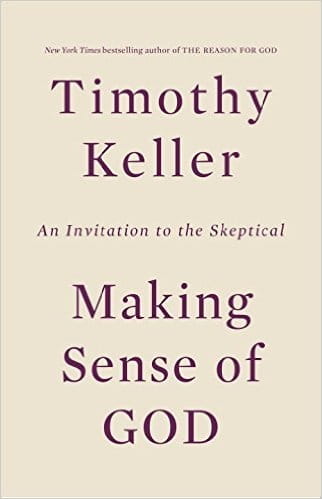
Awhile back I was doing a HIIT (High Intensity Interval Training)
workout over on a nearby running/biking trail. Along the trail there’s a
fairly steep hill that takes about a minute to sprint up at full speed.
For my workout, I would charge up the hill as fast as I could, walk/jog
back down, and repeat the sequence ten times. It puts you in a nice
amount of pain.
Halfway through the last sprint in my set, my legs and lungs were
crying for mercy. I felt sure my body could not possibly run a single
more step. But just as I was about to slow down into a walk, a pair of
lovely ladies crested over the top of the hill and came jogging towards
me. In that moment, an involuntary pride response kicked in, and I
somehow found another gear and continued to haul butt to the top of the
hill.
A seemingly insignificant moment in my life, but it actually spurred a
great deal of reflection. I had felt sure I was physically spent, but
then found deeper reserves of strength left to tap. My mind had lied to
me. What else, I wondered, might my mind be lying about?
As it turns out, a great deal. We all have deep wells of strength that
we may never even know exist, as they are closely guarded by a brain
that would rather loaf and maintain the status quo than take you to the
next level. But don’t be fooled by this tight-fisted sentinel – you’re
physically, mentally, and emotionally stronger than you think.
You’re Physically Stronger Than You Think
Athletes have always known there is a connection between one’s mind
and one’s performance – that you can will yourself to keep going when
the body grows fatigued. But recent studies have shown that the mind can
have quite the opposite effect – slowing you down before you’re
actually physically spent. In essence, the very fatigue your brain
fights against was created by…your brain!
This fact was fascinatingly demonstrated in
a study
conducted by scientists from the University of Kent in England and the
French Institute of Health and Medical Research. In the study, two
groups of men spent 90 minutes sitting in a chair. The first group was
asked to count flashing letters on a computer screen (a task proven to
induce mental fatigue), while the second group watched a relaxing nature
video. Then the men in both groups pedaled a specialized ergometer,
while electrodes zapped their leg muscles in order to produce “maximum
contractile force.” The more fatigued a muscle is, the less it will
respond to these shocks.
The men in the first group who had done the letter counting task
tired out 13% faster than those who had watched the movie, and they
perceived the exercise as being much more difficult than the second
group did.
Yet the muscles of both groups responded
exactly the same way to the electrodes,
producing just as much force from the shocks. The men in the first
group, whose minds had been tuckered out by the counting task,
felt
more tired and gave up more easily, but their muscles were in fact just
as fresh as the men who had simply watched the movie. As the
researchers concluded, “our feelings do not always reflect our
physiological state.”
In another study
conducted at Northumbria University in England, cyclists were put on
stationary bikes and told to pedal as fast as they could for about 2.5
miles. After several of these sessions, the cyclists had gotten a sense
of what seemed to be the fastest pace they were capable of.
Then the researchers put a computer screen in front of them which
displayed a virtual course and two avatars – one which would represent
the current rate at which the participant was pedaling the stationary
bike, and one which the cyclist would be “racing” against. In the first
group, the cyclists were deceived and told that the avatar they would be
“competing” against would be moving at the pace of their own previous
best effort. In fact, the avatar would be going 2% faster than the
cyclist’s personal record. In the second group, the participants were
informed upfront about the competing avatar’s speedier pace.
Cyclists in the second group, doubting they could possibly go 2%
faster than their previous best effort, gave up and simply matched their
old PR.
But the deceived cyclists, believing that the competing avatar was
simply going at their own best pace, and knowing they were capable of
duplicating that pace, sped up to catch it, and thus unknowingly went 2%
faster than they ever had before. (2% may not seem like much, but it
can make a huge difference in a race environment.)
What’s going on in these studies? While the extent of an athlete’s
capabilities has usually focused on things like muscles, heart, and
lungs, it seems the mind also plays a crucial role in setting limits for
one’s performance. Timothy Noakes, professor of exercise and sports
science at the University of Cape Town in South Africa, calls this
limit-setter the “central governor” of the brain. And this governor is
conservative. It’s easily worried about you using up your body’s limited
fuel, and so puts the brakes on your exertion long before you’ve
reached your true physical limits. Yet you may never know that you’ve
got more to give, as your brain is very adept at deceiving you into
thinking that you can’t possibly go any faster or harder.
In other words, your brain is lazy, and a no good, yellow-bellied liar.
You’re Mentally Stronger Than You Think
Just as your brain can convince you that you’ve reached your physical
limits when you really haven’t, it can also tell you you’re too
tuckered out for mental tasks, when your noodle actually has more to
give.
Some of the most fascinating
studies
on the link between the mind and physical exertion have shown that
simply swishing a sugary drink in your mouth and then spitting it out
without swallowing it can boost athletic performance by 2% (again,
despite the small number, this represents a significant boost). Your
body uses glucose for fuel during exercise, but the swish-n-spit effect
occurs even when the muscles still have plenty of glucose left to burn,
and
even though the athlete hasn’t actually ingested any glucose!
The sugary drink in the mouth tricks the brain’s anxious, bean-counting
central governor into thinking that more fuel is on the way, leading it
to relax its guard on your supply so you can continue to push yourself.
Researchers wondered if the swish-n-spit effect would also work when
it came to sticking with purely mental tasks. As we’ve discussed before,
your willpower is a finite resource that is depleted each time you exercise your self-control.
If you use your willpower up on one task, you then have less of it for
the next one. It used to be thought that this process of willpower
depletion occurred because exercising self-control utilized glucose in
the body, and the lower your glucose went, the less willpower you had at
your disposal. For this reason, eating something was suggested as a way
to replenish your willpower supply, and indeed studies showed that
willpower-depleted individuals were able to exercise greater
self-control after they had a snack, particularly something sweet.
But
a recent study
found that simply swishing a sugary drink in the mouth without
swallowing it had the very same effect. Participants were first given a
willpower-sapping task like working on impossible-to-solve math
problems, reading a boring piece of writing, or avoiding a plate of
cookies and eating radishes instead. With their mental fortitude sapped,
they would then give up more easily when presented with another tedious
task. However, when the participants swished their mouths with a sugary
drink in between the self-control-requiring tasks, they stuck with them
longer. Even though the participants hadn’t actually ingested any
glucose, sensing sugar in the mouth was enough to trick the anxious,
fuel-monitoring central governor into girding up their minds for another
round of effort.
Just as with physical exertion, your brain lies to you about what
you’re mentally capable of; it tells you your willpower is tapped out,
when really there’s plenty of mental energy being held in reserve.
You’re Emotionally Stronger Than You Think
The brain not only gets anxious about expending too much energy in
the midst of physical and mental exertions, it also wrings its
metaphorical hands when simply
anticipating a challenge to your emotional capabilities.
People often think that if something tragic befell them – like losing
a spouse or becoming paralyzed in an accident – they’d be crushed and
could not possibly go on and lead a happy life. But as we discussed in
this post,
studies have not born this out and in fact show that human beings are
far more resilient than we usually give ourselves credit for.
In
studies
done on older couples — those who had been married for decades — 6
months after losing their spouses, 50% of the surviving partners
experienced little to no symptoms of acute grief or depression, and only
10% of participants suffered from a chronic depression that lasted
longer than 18 months. This is not to say the participants did not miss
their deceased spouses a good deal, but that happiness did return to
their lives relatively quickly, and their grief was not as debilitating
as many people imagine it would be.
Another
study
that followed people after they had become paralyzed in an accident
found that the happiness of the victims returned to near their baseline
pre-accident levels within months following the injury. And they took
more pleasure in mundane tasks and felt more optimistic about their
future prospects of happiness than another group which was also studied —
those who had won the lottery.
Contrary to what you might think when you ponder dealing with a
tragedy and feel a pit in your stomach, human beings have an incredible
capacity to bounce back from even the most crushing of blows.
Tapping Into Your Hidden Wells of Strength
Now in fairness to our dear old brain, it’s anxious and lazy for a
reason. Back when basic survival was its most paramount concern,
conserving your energy helped keep you alive.
Nowadays, since most of us have the basic necessities of life, we can afford to turn our focus to the top tier of
Maslow’s Hierarchy of Needs,
i.e., self-actualization. Thus in the modern world, our brain’s desire
to maintain the status quo can hold us back instead of moving us
forward, and can keep us from
becoming “superhuman.”
So how do you gain access to these well-guarded reserves of strength?
The first step is to simply call your brain on its bluff. When I want
to rest during my workout or feel like I don’t have enough mental
energy to focus while I’m reading, I seriously have found it quite
helpful to think something like, “Shut the flip up brain! You’re lying
to me, bro!” (My brain and I are bros.) More positive self-talk (“I’m
feeling good!) works the best for some people. Either way, it’s like
telling the emperor he has no clothes. Simply acknowledging the illusion
that you’re totally tapped out can vaporize it, providing the spurt of
motivation you need to dig deeper.
Studies
have in fact proven the efficacy of this kind of motivational
self-talk; those who engage in it throughout their workout are able to
exert themselves harder and longer, while actually feeling that the
exercise is less difficult, than those who do not give themselves a
continual pep talk.
With HIIT training, using a treadmill is something else I have found
that works in upping the intensity of your effort. As opposed to running
outside or on a track where you can often unconsciously slow down even
when you feel you’re busting butt, on a treadmill you can lock in a very
challenging pace, and then have no choice but to run that fast.
When it comes to both physical and mental challenges, introducing
competition is key in helping you reach a level you wouldn’t have been
able to training by yourself. In a study similar to the first one
mentioned at the start of this article, cyclists were told they were
racing against a competitor who was hidden behind a large screen. This
competitor and his pace were projected for the cyclist to see as he
pedaled furiously on a stationery bike. In reality, the “competitor” was
simply an avatar moving at the participant’s own previous best pace.
Spurred by the fire of competition to work harder, the cyclist was able
to beat himself and go faster than he ever had before.
Deadlines are also an effective tool for helping you grow and get
outside of your comfort zone. When you can’t back out of something, you
have no choice but to push past the resistance and dig deeper, or risk
losing your reputation as a reliable man. As an example, when we
published the first post in a
series on honor,
we promised more articles on its history, decline, and possible
resurgence. But when we dug more into the research, we realized how
insanely complicated both the history and meaning of honor really are.
Attempting to synthesize the information and make a coherent argument
taxed my mind like it has never been taxed before. It was mentally
excruciating. Had I not promised more articles on the subject, I simply
would have given up, but what could I do? I had to deliver. Even though
finishing each article felt like crapping out a pineapple every couple
weeks, the task was accomplished. Having discovered another layer of
what my brain is capable of, I now feel undaunted about tackling other
ambitious projects.
And of course, you can always try swishing your mouth with a sugary
drink! You have to use the real stuff though; you won’t get the same
boost from something that’s artificially sweetened. Try sucking on a
hard candy if you don’t mind the calories.
Of course, emotional challenges are a little more complicated.
Telling your brain to buck up in the midst of grief or depression is not
usually terribly effective. What can help is talking to people who have
been through something similar and come out the other side. Journaling
can help too. By being able to look back on past dark periods of life,
and remember you made it through, you can feel greater hope and
confidence that you’ll be able to handle this challenge as well. That
this too, shall pass.
Physically, mentally, emotionally…when you feel like you can’t go on,
don’t believe the lie. Dig deep. You’re stronger than you think.
Last updated: 2016-11-10





















